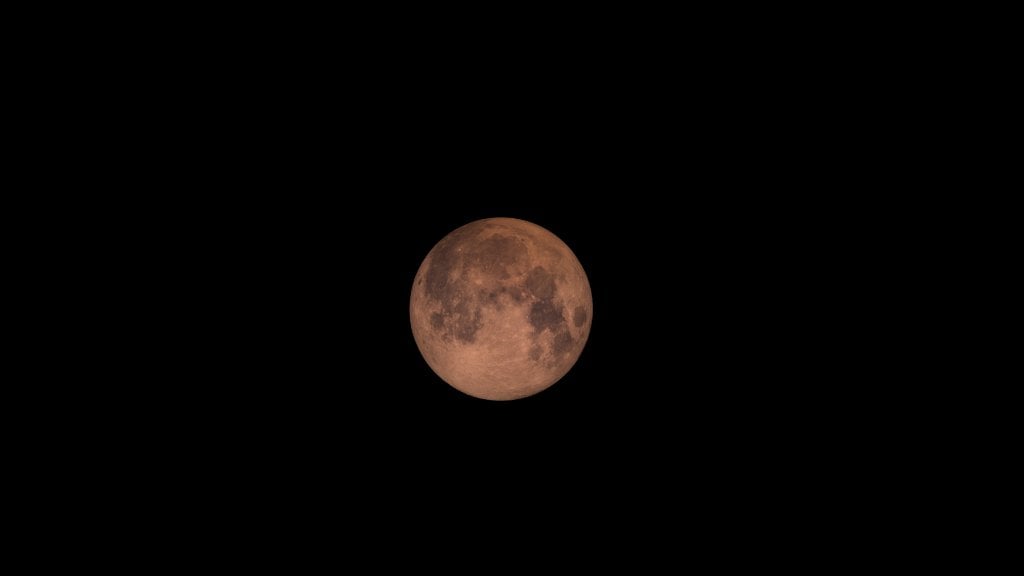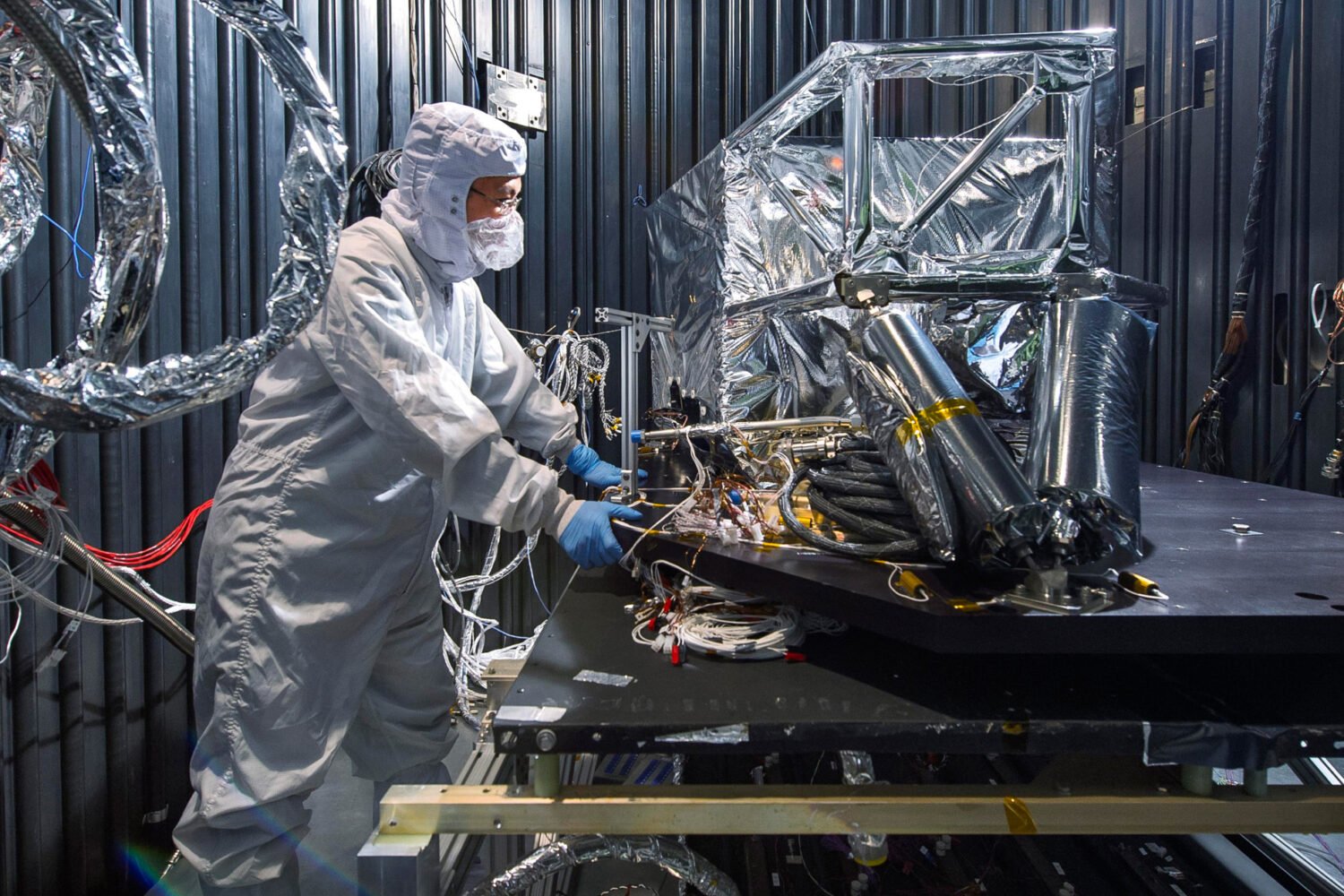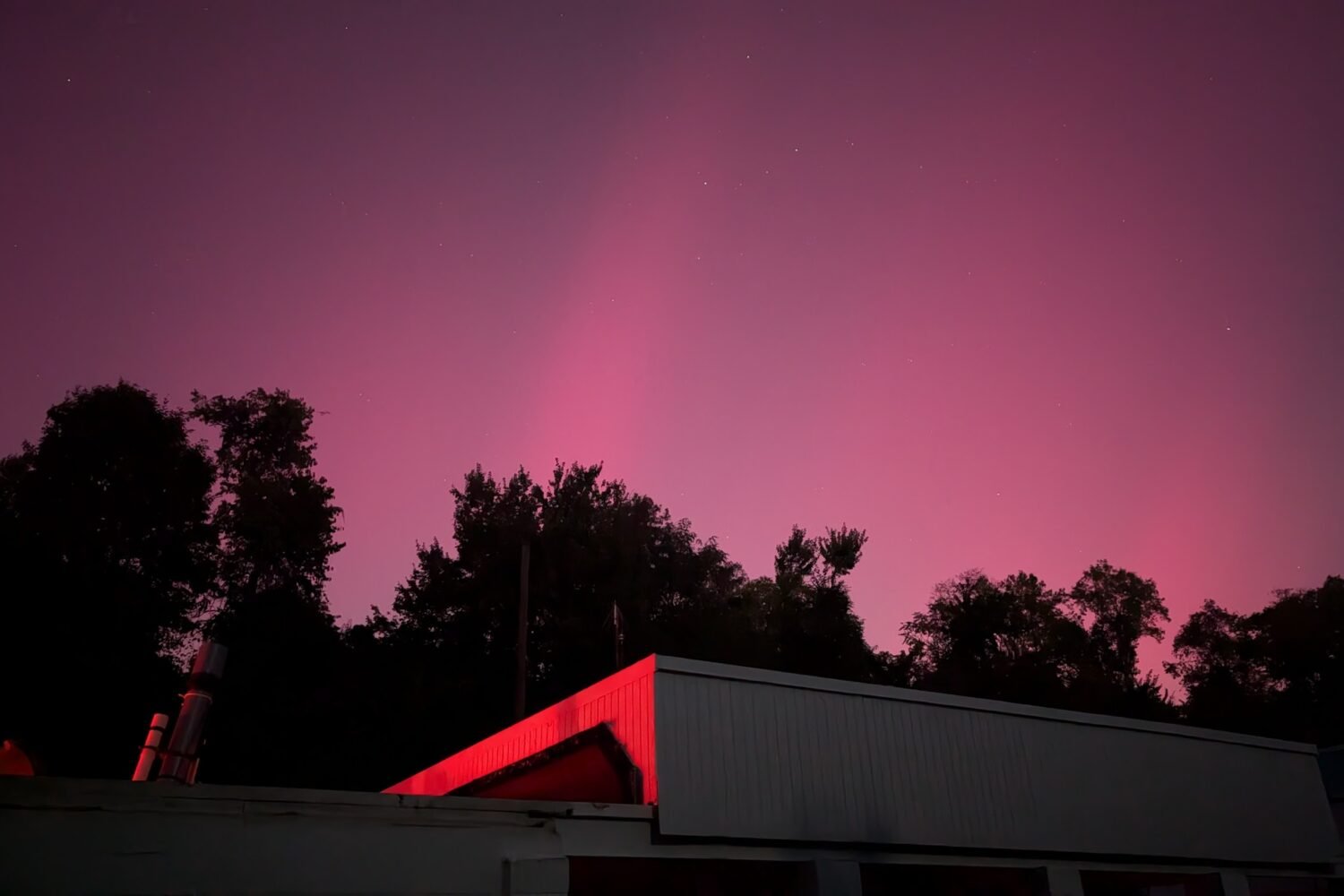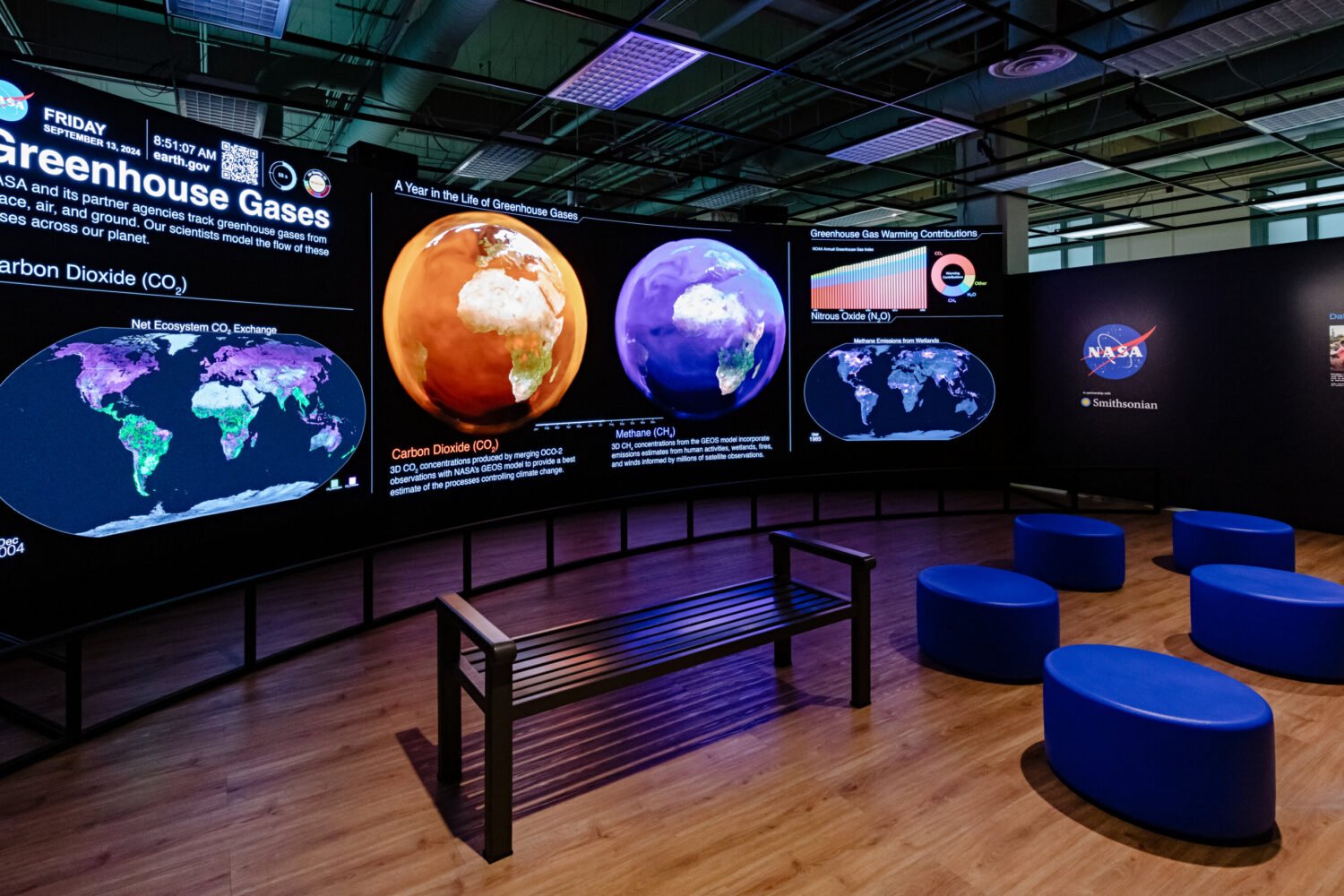A total lunar eclipse will be visible across a majority of the world Sunday night, meaning stargazers in the Washington area will be able to witness a blood moon grace the sky.
A total lunar eclipse is when the moon lines up between the sun and Earth, passing entirely into Earth’s shadow. It results in the moon appearing red, hence the “blood moon” moniker. “The shadowed moon gets illuminated by scattered sunlight coming through the Earth’s atmosphere and that light is primarily red,” says Alan Goldberg, retired scientist and vice president of the Northern Virginia Astronomy Club.
According to NASA, a partial eclipse will begin at 10:27 PM with the moon entering Earth’s partial shadow (called the “penumbra”). The moon will enter Earth’s full shadow (the “umbra”) at 11:29 PM, otherwise known as totality. Totality will last for over an hour, until the moon moves out of the shadow, with the eclipse ending at 2:50 AM.
Goldberg says the most interesting part of the eclipse is the partial shadow phase “because you actually see the motion of the moon into the earth’s shadow.” He adds that other astronomical objects, like stars and the Milky Way, will be more prominent in the sky during the eclipse. Lunar eclipses are safe to look at with the naked eye, as well as binoculars and telescopes, according to NASA.
If you’re planning to step outside to catch a glimpse, Goldberg says to find an area facing south with an unobstructed view of the sky. Ideally, you would want to leave behind the city and the streetlights and head into more rural territory. But if you can’t, Goldberg recommends waterfronts, the Netherlands Carillon bell tower in Arlington, the rooftop of an apartment building, or even the top level of a parking garage.
The last total lunar eclipse happened last May, but this weekend’s event will be more extravagant. This month’s full moon is often known as the “Flower Moon,” named by the Algonquin tribes because flowers usually blossom during this time of year. Sunday night will also produce a “supermoon,” which is when the moon is at its closest point to Earth, appearing larger and brighter than usual.
Sunday’s eclipse is the first of two total lunar eclipses this year. The next total lunar eclipse takes place on November 8. It will be another three years until a blood moon appears in the sky again. This rare phenomenon has prompted celebrations across the area; check out some places holding lunar eclipse viewings.
Bear Branch Nature Center
300 John Owings Rd., Westminster; 9:30 PM to 1 AM
The Westminster Astronomical Society is throwing a “Lunar Eclipse Star Party” at the Bear Branch Nature Center. The organization will provide telescopes, but recommends dressing warm and bringing lawn chairs.
National Arboretum
2400 R St. NE; 8:30 PM to midnight
Join The Friends of the National Arboretum for a night of stargazing and picnicking at the Arboretum’s National Capitol Columns, also known as the Ellipse Meadow. All food except alcohol is permitted. Dogs on leash are also allowed. The event is currently sold out, but you can add yourself to the waitlist here.
Montgomery College Astronomical Observatory
51 Mannakee St., Rockville; 9:30 PM to 12:30 AM
Part of Montgomery College’s “Astronomical Observatory Nights,” there will be a total lunar eclipse viewing on the roof of the Rockville Science Center. There will be telescopes and binoculars available to use. Children are welcome, but kids under five are prohibited on the roof. Parking is free. Register here. (This event may be canceled in the case of inclement weather.)
Turner Farm Park’s Observatory
925 Springvale Rd., Great Falls; 10 PM to 2 AM
The Analemma Society is holding a free viewing event at the Turner Farm’s observatory. Telescopes will be available for use, but attendees are welcome to bring their own. The organization encourages people to bring portable chairs and blankets. (This event may be canceled in the case of inclement weather.)
Smithsonian Steven F. Udvar-Hazy Center
14390 Air and Space Museum Pkwy., Chantilly; 8:30 PM to 1 AM
The Northern Virginia Astronomy Club will have telescopes on hand to view the eclipse Sunday at the Udvar-Hazy Center in Chantilly. The event will take place in the museum’s bus parking lot and organizers encourage attendees to bring flashlights wrapped in red cellophane for lighting. NOVAC’s astronomers and museum staff will be available to answer questions. Museum parking is free after 4PM. Register for the free event here. (This event may be canceled in the case of inclement weather.)
And if the rain washes out some of these events, NASA plans to live stream the lunar eclipse.



















